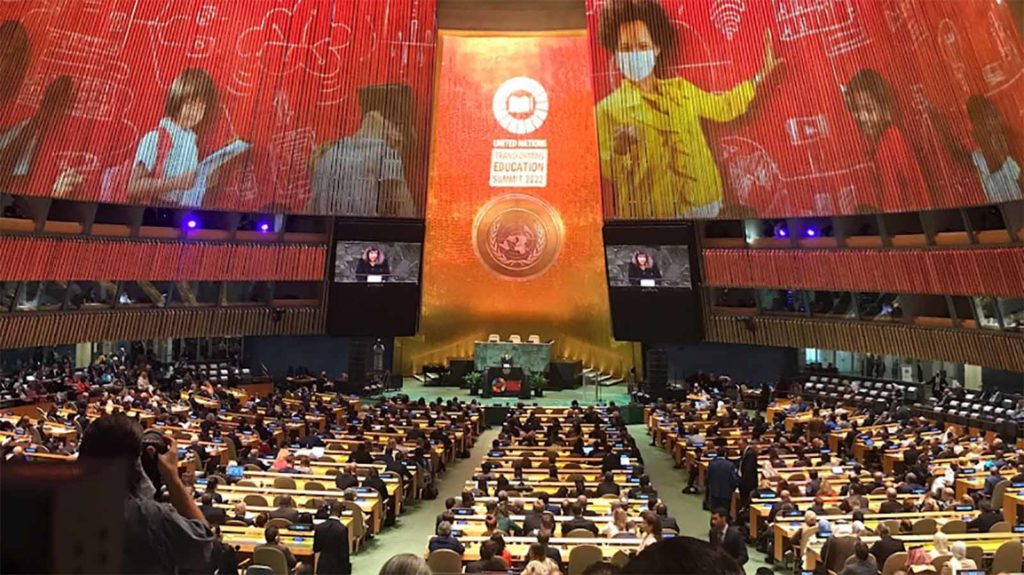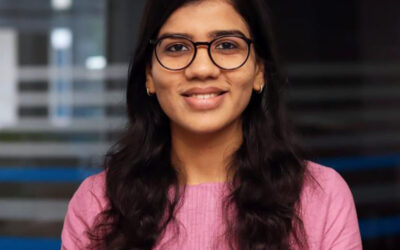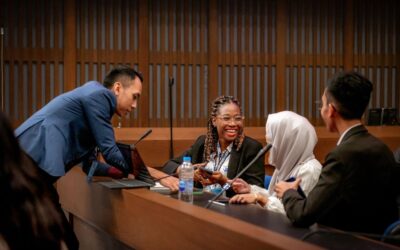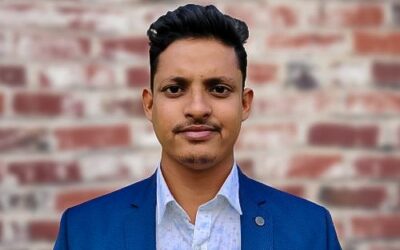
The Transforming Education Summit took place in New York in September 2022 on the margins of the 77th United Nations General Assembly. It was convened as a response to the global education crisis, and as an opportunity to bring education to the top of the global political agenda and to mobilize action and solutions to respond to the reversal of decades of hard-won progress in education caused by the COVID-19 pandemic.
We, Alice Mukashyaka and Thaís Queiroz, United Nations Foundation Next Generation Fellows for Education, attended the Summit in person and it left us with mixed feelings. It was exhausting, but on the other hand we left cautiously hopeful. Lead Fellow, Inés Yábar, sat down with us both to quiz us on our time at the Summit. Let’s take a look at this interview…
Inés: What is your biggest take-away from the Transforming Education Summit?
Thaís: It was great to have civil society and global leaders finally coming together to discuss political priorities after such a long period of virtual events. Meeting in-person facilitates the negotiation of agendas and the design of commitments. This Summit was an important moment for bringing attention back to education.
As a Scout, I was really glad to see that non-formal education finally started to get attention and be part of discussions, even if it was with different names. As a Next Generation Fellow for Education, however, I would say this Summit still didn’t capture the desires of youth in transforming education.
The Youth Declaration is certainly an important win and we are glad for the Office of the Secretary-General’s Envoy on Youth’s coordination on it. But documents are only good when they are implemented, which will be a challenge in different contexts.
Inés: Have you felt empowered/supported in the process as a young person from the Global South?
Alice: In February, we started an Action Group of energetic and determined young people through the Unlock the Future coalition. This group was geared up to engage in different activities in the lead up to the Transforming Education Summit. They wrote letters to their Ministers of Education and led local advocacy. Our role as Next Generation Fellows was to support and engage this diverse global team of young people to drive momentum in the lead up to the Summit.
We felt supported by the United Nations Foundation and our organizations. In the beginning, we collaborated with other youth-led and youth-focused organizations to ensure that young people have a strong and unified presence at the Summit, and we attended consultations of the Youth Declaration. Later on, we felt lost in the planning of the Summit and it was hard to navigate the process, especially young people like me from the Global South, who didn’t receive consistent and real-time information crucial to our planning for and attendance at the Summit. Young people expressed their frustration that everything felt last-minute.
On the positive side, Restless Development launched the Missing Majority campaign that strengthened the messages of marginalized youth who were not able to attend in-person due to a lack of funding and visa issues, especially for those from countries most severely affected by education crises and other global problems – incidentally where the majority of the world’s young people live.
“I was frustrated by the process to attend the actual Summit. I was in New York but I didn’t attend because I didn’t have the pass. It seemed a bit disorganized and last-minute which caused passionate youth who wanted to attend and make their voices heard to be left out of important days of action .”
A member of the Unlock the Future coalition Action Group
Inés: What were the greatest wins for young people around the world?
Thaís: That different actors could see how active young people already are in transforming education. What we will need now is recognition of our work, space and investments. We keep fighting for space at the table, but we also need trust and resources. The Summit was a good space to showcase the work we already do and identify other spaces where our voices can be amplified.
Young people who had the chance to attend the Summit were inspired by the speakers and presentations and understood further all that’s involved in truly transforming education.
“The energy and excitement around the Unlock the Future of Learning event was very evident in-person. I was very inspired by the speakers and presentations and attending the event helped to open my eyes to all the moving parts and stakeholders that are involved in truly transforming education. I’m very happy that this side event took place to involve and highlight youth, key players, and organizations that are doing the work day in and day out to make these changes and visions for the future possible.”
A member of the Unlock the Future coalition Action Group
Inés: What should have been different at, and in the lead up to, the Summit?
Alice: The energy and ambition of young people was impeccable. We had a significant number of young people present at the Summit, however the meaningful engagement of all the young people present was missing. A transparent selection process of youth speakers and delegates would have been better.
Furthermore, offering training and capacity building to young people ahead of the Summit would have made a huge difference in terms of preparation. It would have been better to break the silos and collectively work together as youth networks. I would have loved to see a more effective participation of youth-led civil society organizations and virtual engagement in the lead up to and at the Summit.
Thaís: Young people should have had the opportunity to access information and participate effectively at the Summit including the the Leader’s Day, and leaders should have been present on the Mobilization Day.
Inés: What comes next after the Summit, and what are your big ambitions moving forward?
Alice: Young people make up half of the world’s population. Not only will they and future generations inherit the decisions made at the Transforming Education Summit, but they also hold the vision, ambition and solutions for an education system that is fit for purpose. The journey has just begun!
Young People in our Action Group and those from the wider network are keen to keep the momentum, take advantage of events like the upcoming SDG Summit in 2023, and support the effort of implementing the Youth Declaration at the grassroots level. We want to ensure the accountability of leaders to take up our recommendations, from the countries’ commitments on transforming education to the Youth Declaration. We want to play a crucial role after this big moment, but ongoing support and resources are needed to make this happen.


